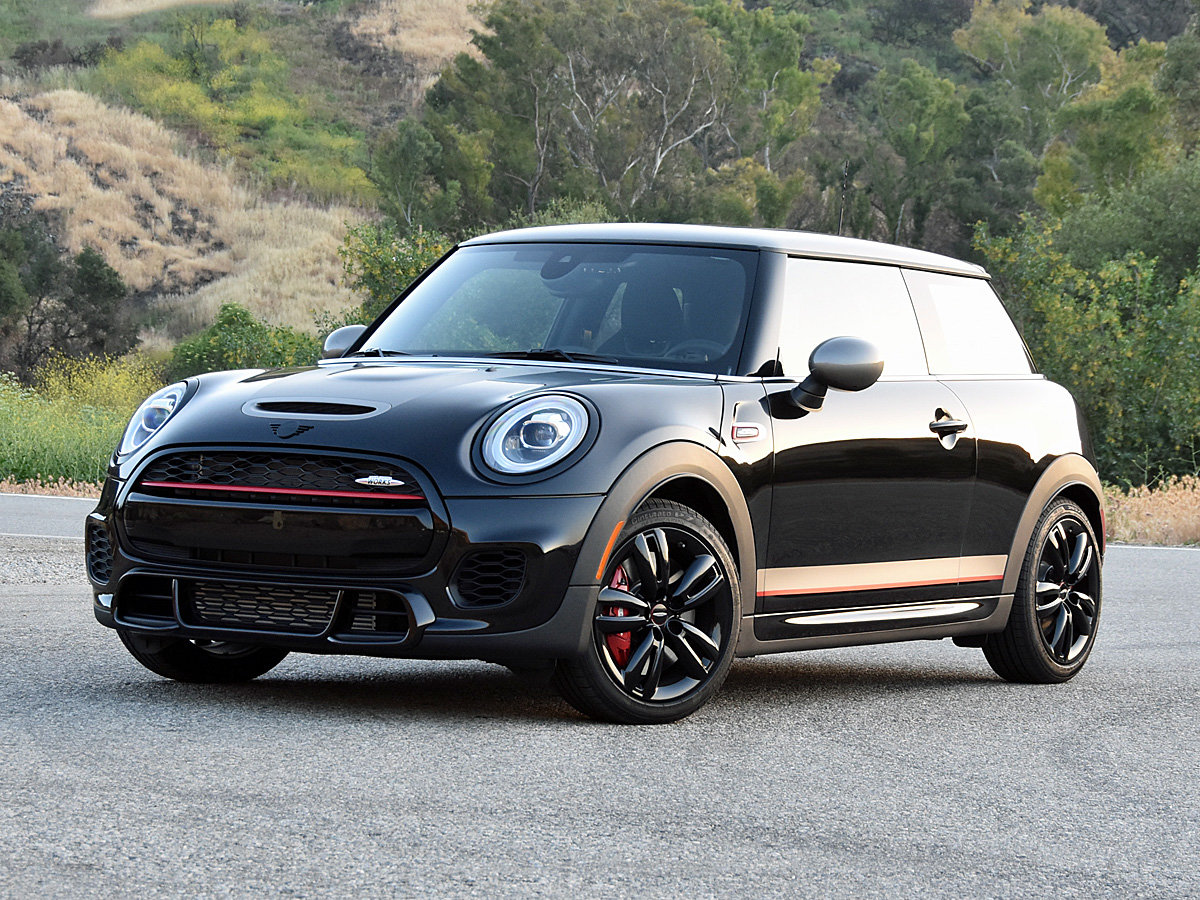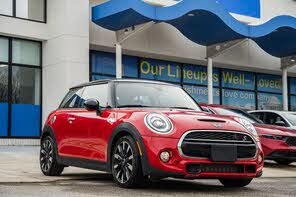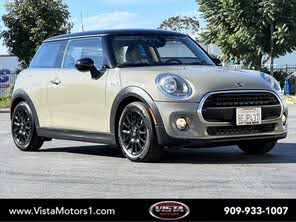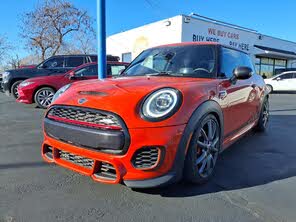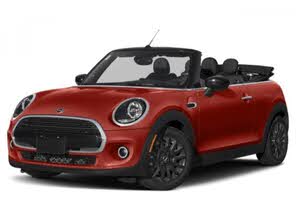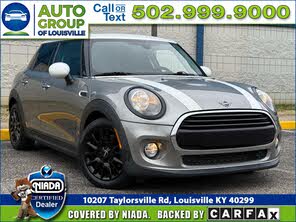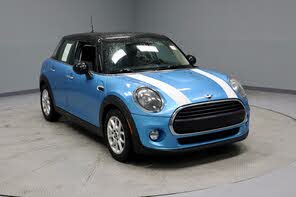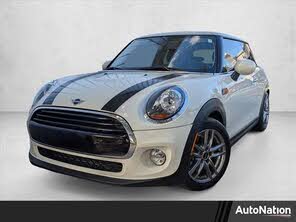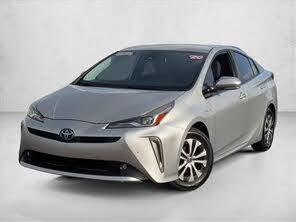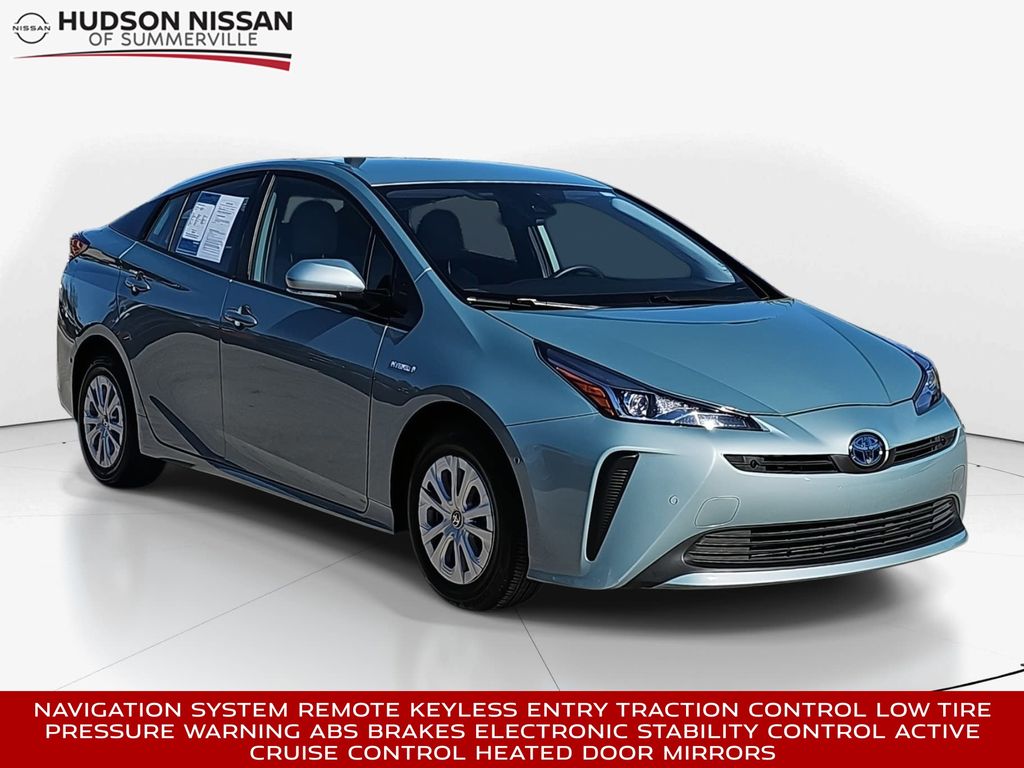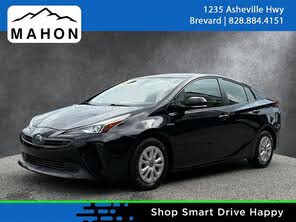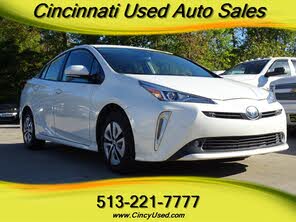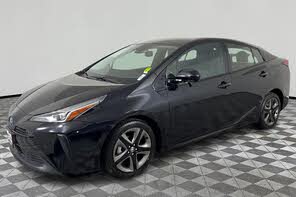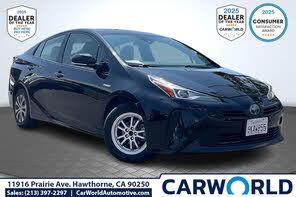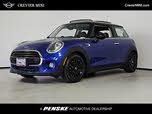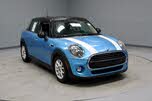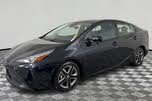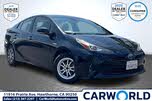2019 MINI Cooper vs 2020 Toyota Prius
Overview | |
MSRP$21,900 | MSRP$24,325 |
Listings294 | Listings112 |
Ratings & Reviews | |
User Reviews | User Reviews |
Expert reviews6.3 out of 10 | Expert reviews7.5 out of 10 |
Pros
Cons
| Pros
Cons
|
2019 MINI Cooper Reviews SummaryWhen we were growing up, my dad frequently took my brother and me go-karting. Sitting low to the ground on a tiny frame, feeling the wind in my face, racing around paved tracks no doubt set the stage for my love of small and fast cars. The 2019 MINI Cooper, especially the John Cooper Works trim, is such a vehicle. But given its handful of flaws, it's hard to adore the latest Cooper the way I did when MINI was first resurrected in 2002. | |
2020 Toyota Prius Reviews SummaryEver heard of an eponym? It’s a brand or product that is so popular that it’s come to define its respective market. Think of Kleenex for tissues or Band-Aid for medical bandages. For hybrids, the Toyota Prius has ascended to near-eponym status. It was one of the first—and remains one of the most popular—hybrids ever made. As automakers across the industry are rolling out more hybrid models, the Prius continues to be the standard-bearer of this genre. This is largely due to the fact that the Prius is a dedicated hybrid, rather than a hybrid variant of an existing model. Throughout the industry, different companies are taking different approaches to alt-fuel vehicles, including full-electric and hydrogen fuel cell powertrains. The Prius endures as the leader in hybrid power due to a focus on fuel efficiency that doesn’t compromise on style, drivability, and versatility. So how does the Prius hold its ground as more players enter the fray? Read on to find out. | |
No video found | |
Popular Features & Specs | |
Engine1.5L 134 hp I3 | Engine1.8L 121 hp I4 Hybrid |
Drive TrainFWD | Drive TrainFWD |
Seating Capacity4 | Seating Capacity5 |
Horsepower134 hp @ 4400 rpm | Horsepower |
EV Battery Capacity | EV Battery Capacity0.7 kWh |
MPG City28 | MPG City58 |
MPG Highway38 | MPG Highway53 |
Engine | |
Engine Name1.5L 134 hp I3 | Engine Name1.8L 121 hp I4 Hybrid |
Torque162 lb-ft @ 1250 rpm | Torque |
Horsepower134 hp @ 4400 rpm | Horsepower |
DrivetrainFWD | DrivetrainFWD |
Fuel Economy | |
EV Battery Capacity | EV Battery Capacity0.7 kWh |
MPG City28 | MPG City58 |
MPG Highway38 | MPG Highway53 |
Interior | |
Seating Capacity4 | Seating Capacity5 |
Safety | |
Front Crash Overall4 | Front Crash Overall4 |
Side Crash Overall4 | Side Crash Overall5 |
Dimensions & Capacity | |
Cargo Space8.7 cu ft | Cargo Space27.4 cu ft |
Curb Weight2625 lbs | Curb Weight3010 lbs |
Height55.7 in | Height57.9 in |
Length151.1 in | Length180.0 in |
Width76.1 in | Width69.3 in |
Wheelbase98.2 in | Wheelbase106.3 in |
Maximum Payload680 lbs | Maximum Payload825 lbs |
Number of doors2 | Number of doors4 |
Overview | ||
MSRP | $21,900 | $24,325 |
Listings | ||
Ratings & Reviews | ||
User reviews | ||
Expert reviews | 6.3 out of 10Read full review | 7.5 out of 10Read full review |
Pros & cons | Pros
Cons
| Pros
Cons
|
Summary | When we were growing up, my dad frequently took my brother and me go-karting. Sitting low to the ground on a tiny frame, feeling the wind in my face, racing around paved tracks no doubt set the stage for my love of small and fast cars. The 2019 MINI Cooper, especially the John Cooper Works trim, is such a vehicle. But given its handful of flaws, it's hard to adore the latest Cooper the way I did when MINI was first resurrected in 2002. | Ever heard of an eponym? It’s a brand or product that is so popular that it’s come to define its respective market. Think of Kleenex for tissues or Band-Aid for medical bandages. For hybrids, the Toyota Prius has ascended to near-eponym status. It was one of the first—and remains one of the most popular—hybrids ever made. As automakers across the industry are rolling out more hybrid models, the Prius continues to be the standard-bearer of this genre. This is largely due to the fact that the Prius is a dedicated hybrid, rather than a hybrid variant of an existing model. Throughout the industry, different companies are taking different approaches to alt-fuel vehicles, including full-electric and hydrogen fuel cell powertrains. The Prius endures as the leader in hybrid power due to a focus on fuel efficiency that doesn’t compromise on style, drivability, and versatility. So how does the Prius hold its ground as more players enter the fray? Read on to find out. |
Video | No video found | |
Popular Features & Specs | ||
Engine | 1.5L 134 hp I3 | 1.8L 121 hp I4 Hybrid |
Drive Train | FWD | FWD |
Seating Capacity | 4 | 5 |
Horsepower | 134 hp @ 4400 rpm | |
EV Battery Capacity | 0.7 kWh | |
MPG City | 28 | 58 |
MPG Highway | 38 | 53 |
Engine | ||
Engine Name | 1.5L 134 hp I3 | 1.8L 121 hp I4 Hybrid |
Torque | 162 lb-ft @ 1250 rpm | |
Horsepower | 134 hp @ 4400 rpm | |
Drivetrain | FWD | FWD |
Fuel Economy | ||
EV Battery Capacity | 0.7 kWh | |
MPG City | 28 | 58 |
MPG Highway | 38 | 53 |
Interior | ||
Seating Capacity | 4 | 5 |
Safety | ||
Front Crash Overall | 4 | 4 |
Side Crash Overall | 4 | 5 |
Dimensions & Capacity | ||
Cargo Space | 8.7 cu ft | 27.4 cu ft |
Curb Weight | 2625 lbs | 3010 lbs |
Height | 55.7 in | 57.9 in |
Length | 151.1 in | 180.0 in |
Width | 76.1 in | 69.3 in |
Wheelbase | 98.2 in | 106.3 in |
Maximum Payload | 680 lbs | 825 lbs |
Number of doors | 2 | 4 |
The 2019 MINI Cooper retained the charm that made its predecessors iconic, but with a more grown-up and technologically sophisticated design. While it still had the floating roof, wrap-around glass, and classic Mini styling, the newer model's larger headlights, taillights, and front overhang detracted from its simple elegance. Inside, the once beloved pie-plate-size speedometer was replaced by a rectangular infotainment screen, surrounded by mood lighting. Despite these changes, the 2019 MINI Cooper continued to convey a sense of individuality, though the added technology introduced a layer of complexity.
In contrast, the 2020 Toyota Prius maintained its signature jellybean-like shape, optimized for aerodynamics. The latest generation featured visual tweaks to give it a more sedan-like appearance while retaining its hatchback functionality. The Prius's futuristic style remained contemporary, with a cabin defined by centrally located instrumentation and gauges. The interior design embraced an unorthodox layout, which had been a hallmark of the Prius for over two decades.


















The 2019 MINI Cooper John Cooper Works version was the pinnacle of performance for the model, boasting a turbocharged 2.0-liter 4-cylinder engine that produced 228 horsepower and 236 pound-feet of torque. This power enabled the car to accelerate from 0 to 60 mph in 5.9 seconds with the optional 6-speed automatic transmission, or 6.1 seconds with the 6-speed manual. The car's performance was enhanced by a John Cooper Works Pro Exhaust Valve, providing an exhilarating auditory experience. However, the car's handling was occasionally marred by torque steer and braking issues during aggressive driving.
The 2020 Toyota Prius, on the other hand, featured a 1.8-liter four-cylinder engine paired with an electric motor, delivering a combined output of 121 horsepower and 105 pound-feet of torque. The Prius offered smooth and confident acceleration, particularly at lower speeds, with a seamless transition between electric and conventional power. It had three drive modes—EV, Eco, and Power—each catering to different driving needs. The unique shifter design and Engine Braking mode added to the car's practicality, especially in mountainous regions. While not a sports car, the Prius provided engaging handling and a smooth ride, making it ideal for daily commutes.
The 2019 MINI Cooper, even in its 2-door hardtop form, offered surprising utility. The back seat could accommodate passengers if the front seats were adjusted accordingly, and the 8.7-cubic-foot trunk could hold a full-size suitcase and a backpack. When used as a 2-seater, the Cooper provided a spacious 34-cubic-foot trunk. The front seats were adjustable and comfortable, with significant side bolsters and manual thigh-support extensions. However, the car's controls prioritized style over function, with chrome toggle switches and unconventional door release handles.
The 2020 Toyota Prius made excellent use of its compact platform, offering deep door pockets, a large tray area between the front seats, and additional sub-trays around the center console. The front seats were spacious and comfortable, with good headroom and legroom, and the rear seats provided ample space as well. The Prius excelled in cargo space, offering 50.7 cubic feet with the rear seats folded, and between 24.6 and 27.4 cubic feet with the seats up, depending on the model. This made the Prius one of the most versatile options among hybrid and electric vehicles.
The 2019 MINI Cooper's top-level infotainment system, based on BMW iDrive technology, featured an 8.8-inch display screen, navigation, and MINI Connected Services. It offered three methods of operation: voice control, a touchscreen, and physical controls. However, the physical controls were difficult to access, and the touchscreen's small virtual buttons were challenging to use. The system sometimes behaved unpredictably, adding to user frustration. The car also offered wireless charging, wireless Apple CarPlay, and a Harman Kardon audio system, but lacked Android Auto. The head-up display and Parking Assistant were useful features, though the latter seemed redundant given the car's size.
The 2020 Toyota Prius came standard with a 7-inch touchscreen, featuring a sensible menu layout and standard Android Auto and Apple CarPlay. Other standard features included Bluetooth connectivity, a WiFi hotspot, and three USB ports. The Limited trim upgraded to an 11.6-inch screen with a customizable, tablet-like layout, though it lacked Android Auto. The Prius also offered satellite radio, HD Radio, a head-up display, and a 10-speaker JBL premium audio system. The top-center instrument panel, a defining feature of the Prius, provided critical readouts and could be toggled via the steering wheel.
The 2019 MINI Cooper offered a limited set of safety systems, including eight airbags, a reversing camera, and an Active Driving Assistant with forward-collision warning, automatic emergency braking, automatic high-beam headlights, and a speed-limit information system. Adaptive cruise control was available, but the car lacked blind-spot monitoring, rear cross-traffic alert, lane-departure warning, lane-keeping assist, and lane-centering assist. The MINI Cooper received a 4-star overall rating from the federal government and was a Top Safety Pick by the IIHS in 2018, though it lost that rating in 2019.
The 2020 Toyota Prius came equipped with Toyota Safety Sense 2.0, which included automatic emergency braking, forward-collision warning, lane-departure warning, adaptive cruise control, and automatic high beams. Optional features included blind-spot monitoring, rear cross-traffic alert, front-and-rear parking sensors, and active park assist. The Prius also offered lane-tracing assist, which helped center the vehicle in its lane. The Prius earned a five-star rating from the NHTSA and a "Top Safety Pick" accolade from the IIHS, though it fell short of the highest "Top Safety Pick+" rating.
CarGurus highlights

According to CarGurus experts, the overall rating for the 2019 MINI Cooper is 6.3 out of 10, while the 2020 Toyota Prius scores 7.5 out of 10. Based on these ratings, the 2020 Toyota Prius is the better choice, offering superior safety features, more interior space, and better overall value.
Choose the 2019 MINI Cooper if:
- You prioritize performance and driving engagement.
- You appreciate unique styling and individuality.
- You prefer a compact car with a surprising amount of utility.
Choose the 2020 Toyota Prius if:
- You value fuel efficiency and smooth hybrid performance.
- You need a spacious and versatile interior.
- You prioritize advanced safety features and high safety ratings.
CarGurus highlights

According to CarGurus experts, the overall rating for the 2019 MINI Cooper is 6.3 out of 10, while the 2020 Toyota Prius scores 7.5 out of 10. Based on these ratings, the 2020 Toyota Prius is the better choice, offering superior safety features, more interior space, and better overall value.
Choose the 2019 MINI Cooper if:
Shop Now- You prioritize performance and driving engagement.
- You appreciate unique styling and individuality.
- You prefer a compact car with a surprising amount of utility.
Choose the 2020 Toyota Prius if:
Shop Now- You value fuel efficiency and smooth hybrid performance.
- You need a spacious and versatile interior.
- You prioritize advanced safety features and high safety ratings.

By: CarGurus + AI
At CarGurus, our team of experienced automotive writers remain at the heart of our content operation, conducting hands-on car tests and writing insightful guides that are backed by years of industry experience. To complement this, we are harnessing AI to make our content offering more diverse and more helpful to shoppers than ever. To achieve this, our AI systems are based exclusively on CarGurus content, ratings and data, so that what we produce is both unique to CarGurus, and uniquely helpful to car shoppers.
